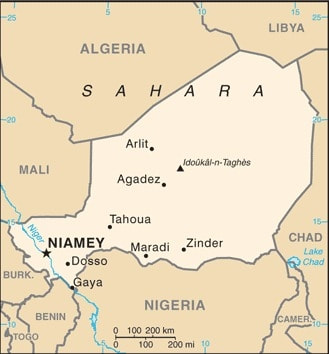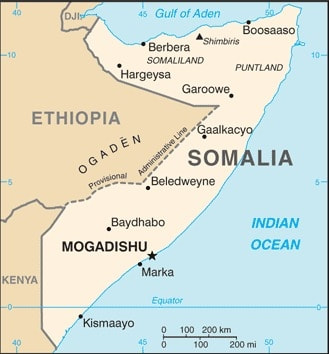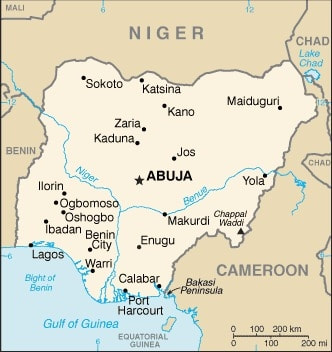Country Academics
AFRICOM General
|
Click on pictures above for country specific materials.
“If you haven't read hundreds of books, you are functionally illiterate, and you will be incompetent, because your personal experiences alone aren't broad enough to sustain you.” ― Jim Mattis, Call Sign Chaos: Learning to Lead |
DOCUMENTARIES/FILMS
Orphans of the Sahara 1 | Al Jazeera (YouTube) In late 2011, thousands of Tuareg workers and fighters, many of them mercenaries for slain Libyan leader Muammar Gaddafi, return to their Saharan homeland in Niger and Mali. Orphans of the Sahara 2 | Al Jazeera (YouTube) Early in 2012, as the massive Tuareg rebellion sweeps northern Mali, defeated Mali Army officers stage a coup d'etat in the south leading to the total collapse of government in the country. Orphans of the Sahara 3 | Al Jazeera (YouTube) The final episode of this three-part series goes inside the French uranium mining zone in Niger - the most deprived nation on earth. |
|
BOOKS
Angry Wind: Through Muslim Black Africa by Truck, Bus, Boat, and Camel Jeffrey Tayler, 2005 RELEVANT FICTION Brotherhood | Amazon Mohamed Mbougar Sarr In this brilliant analysis of tyranny and brutality, Mbougar Sarr explores the ways in which resistance and heroism can often give way to cowardice, all while giving voice to the moral ambiguities and personal struggles involved in each of his characters’ search to impose the values they hold most dear. Things Fall Apart | Amazon Things Fall Apart is the first of three novels in Chinua Achebe's critically acclaimed African Trilogy. It is a classic narrative about Africa's cataclysmic encounter with Europe as it establishes a colonial presence on the continent. Told through the fictional experiences of Okonkwo, a wealthy and fearless Igbo warrior of Umuofia in the late 1800s, Things Fall Apart explores one man's futile resistance to the devaluing of his Igbo traditions by British political andreligious forces and his despair as his community capitulates to the powerful new order. With more than 20 million copies sold and translated into fifty-seven languages, Things Fall Apart provides one of the most illuminating and permanent monuments to African experience. Achebe does not only capture life in a pre-colonial African village, he conveys the tragedy of the loss of that world while broadening our understanding of our contemporary realities. Things Fall Apart, Part I | Crash Course Literature (YouTube) Things Fall Apart, Part II | Crash Course Literature (YouTube) Waiting for the Barbarians | Amazon Waiting for the Barbarians centers on the crisis of the conscience of the Magistrate—a loyal servant of the Empire working in a tiny frontier town, doing his best to ignore an inevitable war with the "barbarians." After he witnesses the cruel and unjust treatment of prisoners of war, he reconsiders his role in the regime and carries out a quixotic act of rebellion. |
Italy's colonial timeline in East Africa:
|
THINK TANK PIECES
The Growing Complexity of Farmer-Herder Conflict in West and Central Africa
Leif Brottem, ACSS
https://africacenter.org/publication/growing-complexity-farmer-herder-conflict-west-central-africa/#author
Climate Change and Violent Conflict in West Africa: Assessing the Evidence, SIPRI
West Africa is widely cited as a hotspot of climate change and insecurity. This SIPRI Insights uses a systematic literature review of academic research to build a better understanding of the relationship between climate change and violent conflict in the region. Its findings are structured around four established ‘pathways’ of climate insecurity: (a) worsening livelihood conditions; (b) increasing migration and changing pastoral mobility patterns; (c) tactical considerations by armed groups; and (d) elite exploitation of local grievances.
The literature review highlights a number of important variables in the relationship between climate change and violent conflict in West Africa: maladaptation to livelihood insecurity; migration away from climate-exposed areas; escalating farmer–herder conflicts; and sometimes weak, sometimes divisive, sometimes exploitative governance. Despite these findings, the literature review reveals current research and policy discussions on climate change and violent conflict in West Africa are informed by a very limited amount of academic research.
SCENE SETTERS
CIA World Fact Book
Niger is a landlocked, Sub-Saharan nation, whose economy centers on subsistence crops, livestock, and some of the world's largest uranium deposits. Agriculture contributes approximately 40% of GDP and provides livelihood for over 80% of the population. The UN ranked Niger as the second least developed country in the world in 2016 due to multiple factors such as food insecurity, lack of industry, high population growth, a weak educational sector, and few prospects for work outside of subsistence farming and herding.
ACLED
The Armed Conflict Location & Event Data Project (ACLED) is a disaggregated data collection, analysis, and crisis mapping project. ACLED collects information on the dates, actors, locations, fatalities, and types of all reported political violence and protest events around the world. The ACLED team conducts analysis to describe, explore, and test conflict scenarios, and makes both data and analysis open for free use by the public.
Fragile States Index
The Fragile States Index (FSI; formerly the Failed States Index) is an annual report mainly published and supported by the United States think tank the Fund for Peace.
UCDP
The Uppsala Conflict Data Program (UCDP) is the world’s main provider of data on organized violence and the oldest ongoing data collection project for civil war, with a history of almost 40 years. Its definition of armed conflict has become the global standard of how conflicts are systematically defined and studied.
Sahel Research Group Weekly News Brief, University of Florida
Subscribe: https://us19.campaign-archive.com/home/?u=6553b94ce388f4ca7c6cdc6a0&id=852afb640f
The Growing Complexity of Farmer-Herder Conflict in West and Central Africa
Leif Brottem, ACSS
https://africacenter.org/publication/growing-complexity-farmer-herder-conflict-west-central-africa/#author
Climate Change and Violent Conflict in West Africa: Assessing the Evidence, SIPRI
West Africa is widely cited as a hotspot of climate change and insecurity. This SIPRI Insights uses a systematic literature review of academic research to build a better understanding of the relationship between climate change and violent conflict in the region. Its findings are structured around four established ‘pathways’ of climate insecurity: (a) worsening livelihood conditions; (b) increasing migration and changing pastoral mobility patterns; (c) tactical considerations by armed groups; and (d) elite exploitation of local grievances.
The literature review highlights a number of important variables in the relationship between climate change and violent conflict in West Africa: maladaptation to livelihood insecurity; migration away from climate-exposed areas; escalating farmer–herder conflicts; and sometimes weak, sometimes divisive, sometimes exploitative governance. Despite these findings, the literature review reveals current research and policy discussions on climate change and violent conflict in West Africa are informed by a very limited amount of academic research.
SCENE SETTERS
CIA World Fact Book
Niger is a landlocked, Sub-Saharan nation, whose economy centers on subsistence crops, livestock, and some of the world's largest uranium deposits. Agriculture contributes approximately 40% of GDP and provides livelihood for over 80% of the population. The UN ranked Niger as the second least developed country in the world in 2016 due to multiple factors such as food insecurity, lack of industry, high population growth, a weak educational sector, and few prospects for work outside of subsistence farming and herding.
ACLED
The Armed Conflict Location & Event Data Project (ACLED) is a disaggregated data collection, analysis, and crisis mapping project. ACLED collects information on the dates, actors, locations, fatalities, and types of all reported political violence and protest events around the world. The ACLED team conducts analysis to describe, explore, and test conflict scenarios, and makes both data and analysis open for free use by the public.
Fragile States Index
The Fragile States Index (FSI; formerly the Failed States Index) is an annual report mainly published and supported by the United States think tank the Fund for Peace.
UCDP
The Uppsala Conflict Data Program (UCDP) is the world’s main provider of data on organized violence and the oldest ongoing data collection project for civil war, with a history of almost 40 years. Its definition of armed conflict has become the global standard of how conflicts are systematically defined and studied.
Sahel Research Group Weekly News Brief, University of Florida
Subscribe: https://us19.campaign-archive.com/home/?u=6553b94ce388f4ca7c6cdc6a0&id=852afb640f


